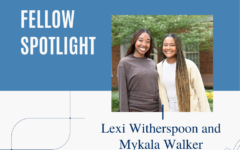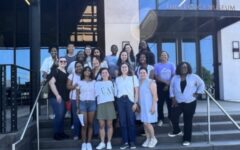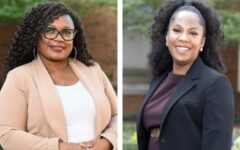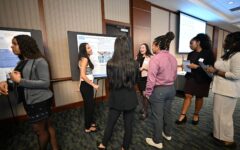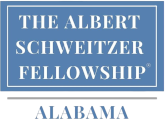Passion Project: What Drives These 2025-2026 Albert Schweitzer Fellows – Part 1
October 30, 2025 2025-11-03 15:52Passion Project: What Drives These 2025-2026 Albert Schweitzer Fellows – Part 1
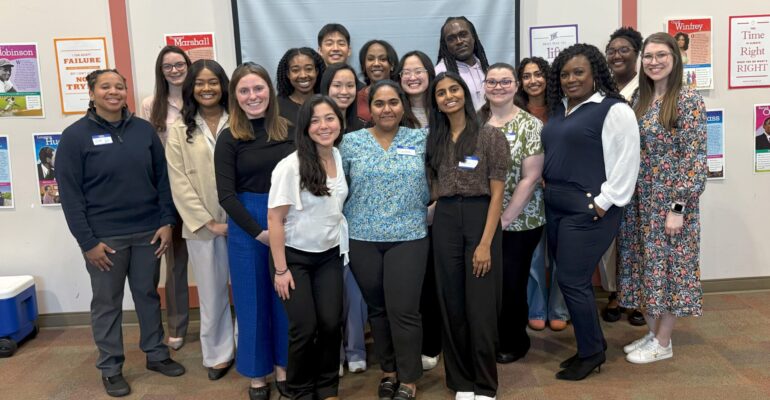
Passion Project: What Drives These 2025-2026 Albert Schweitzer Fellows – Part 1
By Javacia Bowser Harris
Any Albert Schweitzer Fellow can tell you the fellowship year is filled with unexpected twists and turns. The projects fellows set out to pursue are often revamped and revised as the year progresses. However, no matter how much their projects change, their passions remain the same. We caught up with some of the 2025-2026 fellows to discuss not only their projects but the passion that drove them to apply for the program.
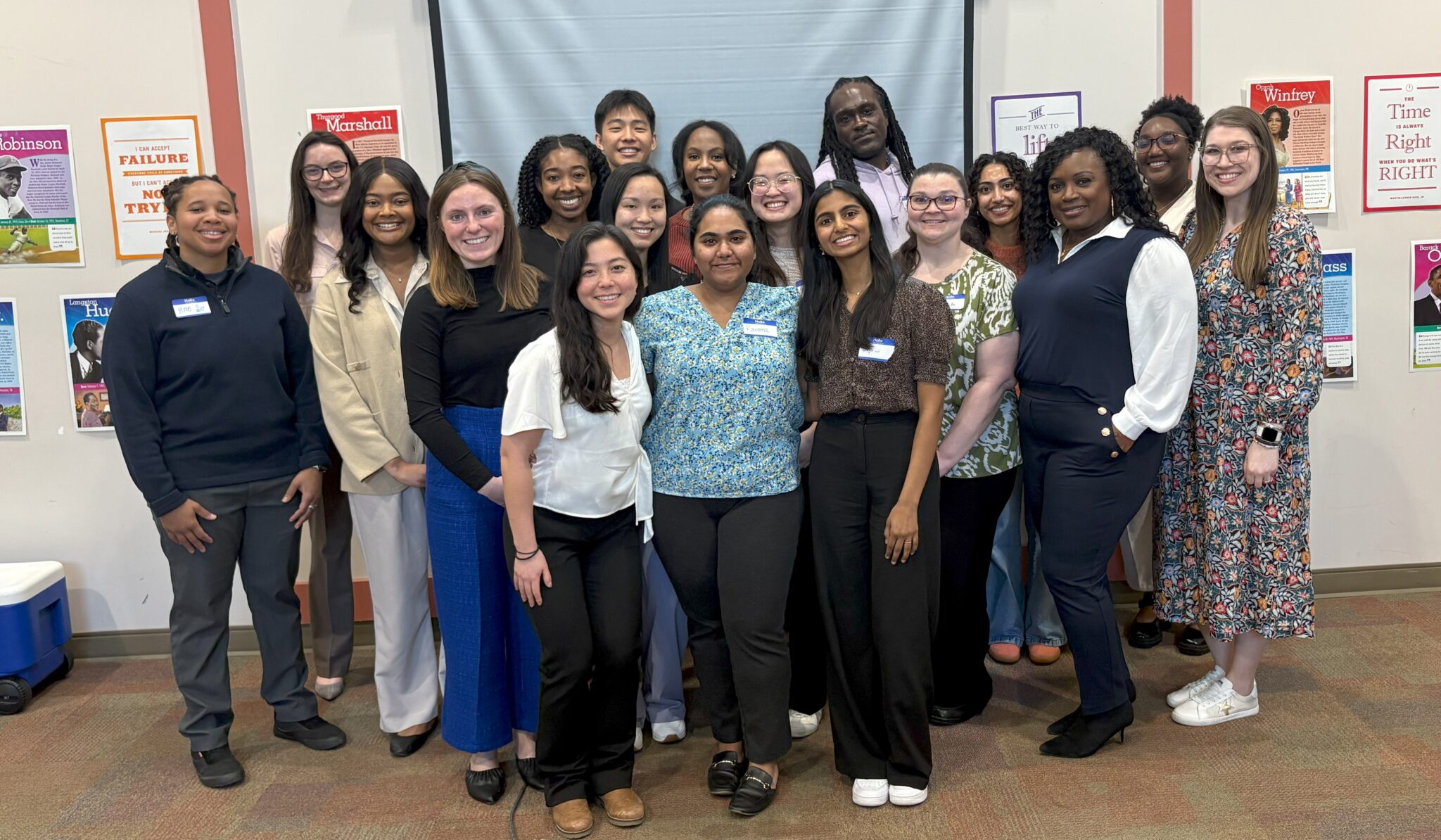
Abby Bell
Abby Bell, a graduate nursing student at Auburn University has a passion for women’s health. During her fellowship year, she hopes to help increase breastfeeding rates in African American women in Alabama to improve maternal and infant outcomes.
“Throughout my graduate studies, I have discovered data revealing that breastfeeding provides protection against diseases that disproportionately affect African American women, such as type 2 diabetes, hypertension, breast and ovarian cancers, and cardiovascular disease,” Abby said. “By identifying barriers while empowering African American women through education, I aim to address this key social determinant of health.”
Abby applied for the Albert Schweitzer Fellowship not only for the sake of the project she plans to pursue, but also for the future impact she hopes to make.
“I believe this fellowship will provide me with a strong foundation in project development and implementation, equipping me with the skills to create meaningful change in my community,” she said.
Kensley Brewis
Kensley Brewis, a doctoral student in Audiology at Auburn University, plans to create an aural rehabilitation group for older adults with hearing loss.
“As a future audiologist, I have seen firsthand how untreated hearing loss can lead to social isolation, cognitive decline, and reduced quality of life,” Kensley said. Through my proposed project, I aim to empower individuals with communication strategies and social support, ultimately improving their well-being.”
Kensley looks forward to getting hands-on experience in community health project development, including skills like program planning and impact assessment, through the fellowship, and she believes the experience will help her both personally and professionally.
“Personally, I want to deepen my ability to connect with and serve diverse populations, strengthening my cultural competency and patient-centered approach,” she said. “Professionally, this experience will prepare me to integrate public health principles into my audiology practice, ensuring that I contribute not only to individual patient care but also to broader efforts in improving healthcare accessibility and equity.”
Tawona Coleman
Tawona Coleman, who is pursuing a Doctor of Nursing Practice at the UAB School of Nursing, plans to spend her fellowship year working to increase access to healthcare for women at a Birmingham-based shelter. But she’s already thinking about ways her ASF experience can empower her to help even more people.
“I’m excited about an opportunity to grow my professional development and leadership skills and to make an impact in the community with the guidance of ASF,” she said. “Once I become a Fellow for Life, I plan to use that platform to introduce new cohorts of fellows to the joys of servanthood. I plan to use this as a teaching opportunity in my career as a future nursing professor.”
Shanquell Dixon
Shanquell Dixon, a graduate student at the University of Alabama at Birmingham’s School of Public Health, has a passion for child safety. So, she’s planning to help better educate parents in the Birmingham area about ways they can prevent their children from suffering injuries from burns, bike or vehicle accidents, and more.
“As a general surgery resident and pediatric surgery research fellow, I’ve had the privilege of working in the hospital over the last three years and noticed that minority children and children of lower socioeconomic status are disproportionately affected by unintentional injuries,” Shanquell said. “I hope that by educating parents of children within this demographic in Birmingham we can address the present health disparities in pediatric injuries.”
Shanquell believes throughout her fellowship year she’ll not only get to educate families, but she’ll learn plenty, too, about how to partner with community organizations to develop sustainable programs that promote health equity.
“As a physician, the knowledge I gain from this experience will support my future endeavors of nonprofit work and public health programming outside of my clinical work to improve the health of my future patients,” she said.
Sophia Fox and Grace-Anna Perry
Sophia Fox and Grace-Anna Perry, both students at UAB School of Medicine, have teamed up to provide free fitness classes to residents in Birmingham’s West End region in hopes of improving cardiovascular fitness and endurance in class participants.
“By offering a safe, supportive environment for physical activity, the classes aim to reduce barriers related to cost and accessibility while promoting healthier lifestyles,” Sophia said. “Additionally, the project fosters a sense of community and empowers participants to take ownership of their health, addressing broader social determinants such as health literacy and social support.”
Sophia decided to apply to ASF after volunteering with a 2024-2025 Fellow’s project.
“I helped improve road infrastructure by painting parking spots, which gave me a firsthand look at the meaningful community engagement the Fellowship fosters,” she said.
Sophia hopes these fitness classes will make her a stronger doctor inside and outside the examination room.
“This experience will shape my future as a physician by enhancing my ability to recognize and address social determinants of health, advocate for underserved populations, and develop sustainable health interventions extending beyond the clinical setting,” she said.
Bre McDonald and Li’an Williams
Bre McDonald, a doctoral student in nutrition sciences at UAB School of Health Professions, and Li’an Williams, a student at UAB’s Heersink School of Medicine, have teamed up to empower patients to adopt a more active and healthier lifestyle through providing resources centered on exercise education.
Bre wants to change people’s view of exercise.
“Exercise doesn’t have to look one way,” she said. “I want people to know they can move their bodies and increase physical activity in many ways according to their ability.”
For her fellowship project she hopes to help the community members she works with improve their overall health by being more physically active, even if they don’t access to a gym.
“The availability of gyms, parks, and fitness equipment is not easily accessible in places,” Bre said. “In addition, there may not be a clear understanding that you don’t necessarily need access to a gym to engage in strength training to increase muscle mass or run on a treadmill to lose weight. People can also exercise in the comfort of
their own homes. I hope that our project captures the reality that everyone can increase their exercise. We need to find ways to smash barriers and get creative.”
For Li’an, it was a trip years ago to the Dominican Republic that made her passionate about implementing preventative programs that address health issues at their roots.
“This experience opened my eyes to the healthcare inequities that exist in underserved communities and deepened my understanding of the impact of community-based programs,” she said.
In addition to their efforts to educate patients, Li’an believes it’s equally important to get healthcare providers on board with implementing similar programming at their clinics.
“The fellowship’s emphasis on teamwork, inclusion, and communication resonates with my belief that meaningful change is often the result of collective effort,” she said.
Raveena Baskaran and Elizabeth Speight
Elizabeth Speight and Raveena Baskaran, both pharmacy students at Auburn University, have teamed up for their fellowship project, united by their shared passion for child internet safety.
“This project topic is important to me specifically as I grew up in the rise of the internet and have seen and experienced how our interactions with the internet as a social and academic resource can have negative effects if not done safely,” Elizabeth said. “As I am considering pediatric pharmacy as a potential focus in my career, this topic will directly affect my prospective patients.”
For their project, Elizabeth and Raveena plan to develop a curriculum for students grade 4 through 6 covering topics such as personal information, passwords, digital footprint, cyberbullying, and more.
“Not everyone has access to education about internet safety due to socioeconomic status, location, and/or community support,” Raveena said. “This project will help families experiencing these challenges by providing research-supported education to children in the community and hopefully bridging the gap in access to education in this topic. I hope that this childhood experience shapes well-informed adults and promotes
mental wellness.”
Raveena believes the project will help her too, in both her professional and personal development.
“Professionally, I hope that ASF will help me develop as a leader, learn to navigate teamwork, and improve my interpersonal communication skills,” she said. “Personally, I hope it will help me enhance empathy, increase my cultural humility, and give me a sense of fulfillment.”
“By sharing their stories, these women can reclaim agency in their healing, and physicians and future physicians gain deeper insight into their lived experiences, fostering more empathetic and patient-centered care,” Lexi said.
Alexis “Lexi” Witherspoon and Mykala Walker
Lexi Witherspoon and Mykala Walker are both students at the UAB Heersink School of Medicine, but they also believe in the healing power of storytelling. That’s why for their fellowship year, they will be using narrative medicine to teach formerly incarcerated women and women recovering from addiction how to share their stories in a therapeutic way.
Lexi believes hearing these stories will benefit her, as well.
“I hope to grow as a more compassionate and culturally aware advocate for underserved communities,” she said. “This fellowship will enhance my ability to connect with patients beyond their diagnosis, shaping me into a more empathetic physician. This experience will reinforce my commitment to service and influence how I approach patient care throughout my career. “

